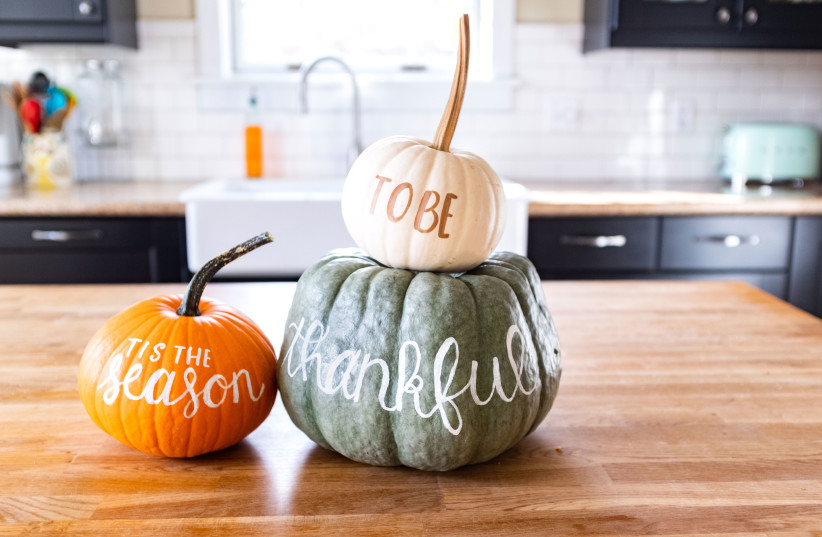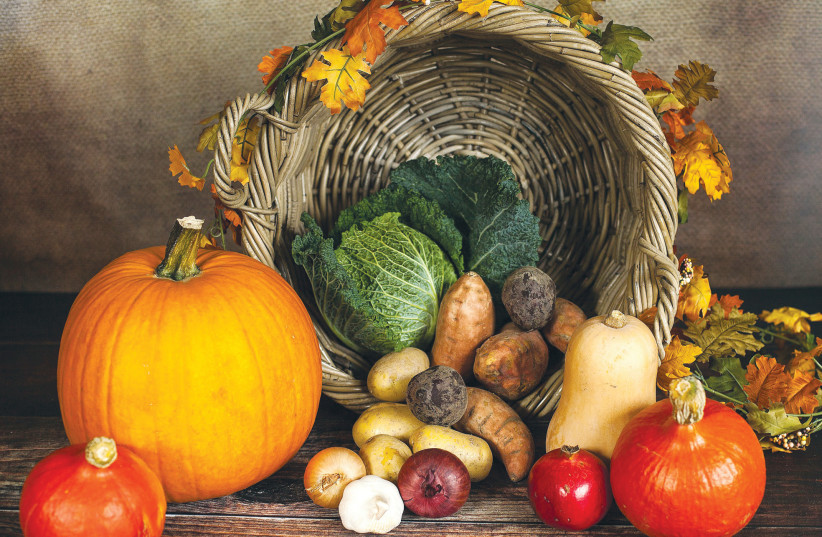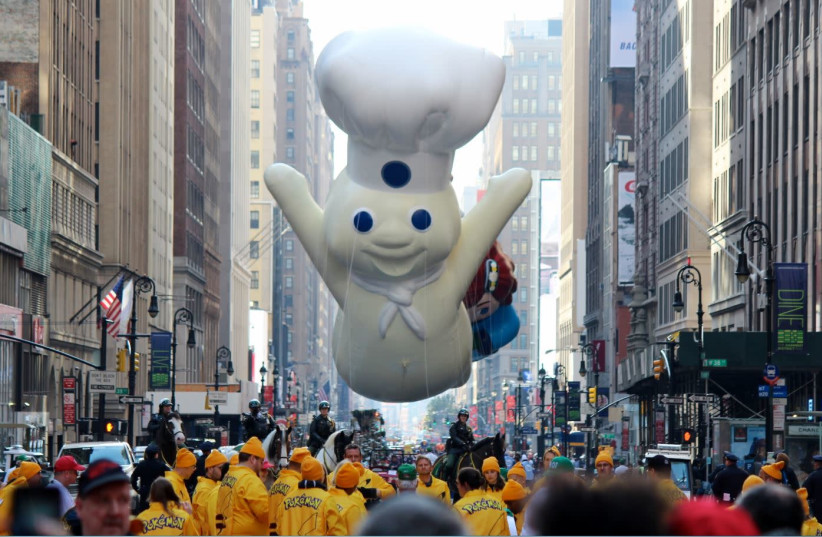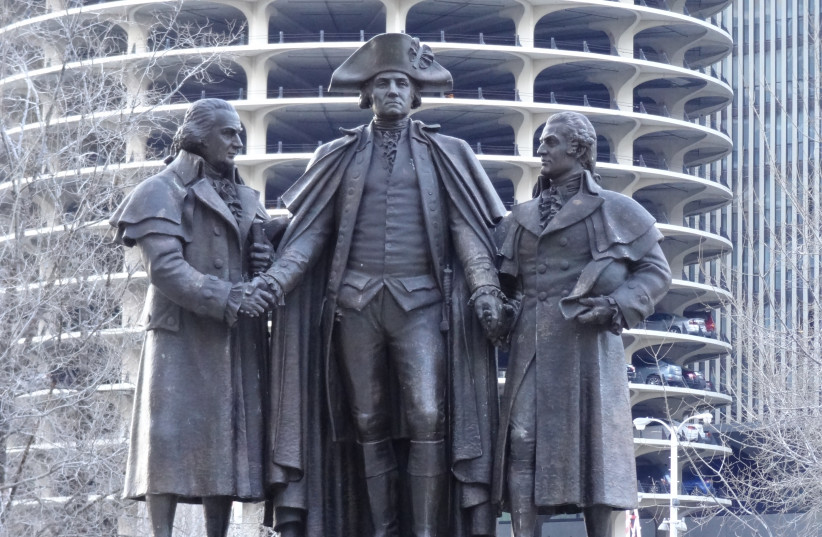The Thanksgiving holiday is considered by many to be a classic slice of Americana, and a definitive part of the American experience.
Dating back over 200 years, Thanksgiving is meant to commemorate events even older than that, though many have made it into a divisive issue in terms of colonialism and its legacy.
Today, Thanksgiving is celebrated throughout the US, having many different customs and traditions – including for many American Jews.
But what are the traditions of Thanksgiving? What are the holiday's origins and why is it so divisive now?
Here is everything you need to know about Thanksgiving:

What are the origins of Thanksgiving? When did people start celebrating it?
The event most popularly associated with Thanksgiving took place in 1621 in Plymouth, Massachusetts. A group of English/Dutch Puritans known as Pilgrims settled in the area but suffered a harsh winter.
Thanks to the help of Tisquantum – more commonly known as Squanto, the last surviving member of the Native American Patuxets who used to live in the land – the Pilgrims learned how to grow corn and fish. With this and receiving food from other nearby Wampanoags, the Pilgrims held their first-ever Thanksgiving in commemoration of this successful harvest.
Thanksgiving was also celebrated in 1777 by the Continental Congress during the Revolutionary War, in particular by George Washington in December of that year in honor of the decisive American victory at the Battle of Saratoga.
On October 3, 1789, then-president Washington announced another day of Thanksgiving, the first designated by the US government. Other Thanksgiving days followed in later years, but it wasn't regular and there wasn't a set date.
It wasn't until 1863 that Thanksgiving was made an official annual holiday by Abraham Lincoln in the middle of the US Civil War. Then it was the last Thursday in November; in 1939, FDR changed it to the penultimate Thursday; finally, in 1941, he made it be on the fourth Thursday of November, and that is when it has been in the US ever since.
What are common Thanksgiving traditions?
Thanksgiving, as it's name implies, traditionally placed a lot of focus on being thankful. Nowadays, this is most evident in charity, such as annual food drives.
The biggest and most iconic aspect of Thanksgiving is food, with families around the country gathering together for large, traditional Thanksgiving dinners. Staples of these meals include turkey, stuffing, squash, corn, sweet potatoes and cranberry sauce - all food native to the Americas.

Pumpkin is another staple holiday food, but is thought to have gained popularity during the Civil War as a symbol of abolitionism, as pumpkins were grown on small farms without slaves.
Turkeys have become symbolic of Thanksgiving as a whole, and sitting US presidents traditionally give a turkey a presidential pardon, sparing them from being killed and eaten.
Sports have also become an important part of the holiday, particularly American NFL football.
Another aspect of Thanksgiving is commercialism, typically manifesting in Thanksgiving Day Parades and Black Friday.
There are many parades, but the most famous is the Macy's Thanksgiving Day Parade in Manhattan. Billed as the largest parade in the world, it sees large floats, marching bands and massive balloons of pop-culture characters and figures. The ending is almost always the Santa Claus float, signaling the arrival of Christmas season.

Black Friday is the day after Thanksgiving and is the most important day in US retail, featuring massive discounts and deals, especially early in the morning. It is approximately the day when many businesses' annual profits commence.
Over time, this extended to the following Monday, Cyber Monday, featuring online shopping deals.
Why is Thanksgiving controversial?
Thanksgiving may be about being thankful in principle, but many say it celebrates the role of colonialism in North America and the displacement and oppression of Native Americans.
Many have criticized the US for having a whitewashed, idealized view of the first Thanksgiving as a sign of peace and friendship between the Pilgrims and Native Americans, overlooking how European colonization saw massive amounts of death and injustice for the native peoples.
Others criticize perceived religious aspects of Thanksgiving, overly capitalistic tendencies of retailers and being the kicking off of the Christmas season and why some put up Christmas decorations so early.
Do other countries celebrate Thanksgiving?
Many countries and cultures have holidays dedicated to giving thanks. But only some have a Thanksgiving holiday like the US.
Canada's Thanksgiving has its own history and traditions and is observed in October, when the US marks Columbus Day in honor of Christopher Columbus's arrival on October 12, 1492.
Grenada's Thanksgiving is more modern, taking place every October 25 on the anniversary of the 1983 US-led invasion after a military coup.
Liberia's Thanksgiving, celebrated on the first Thursday of November, is rooted in the country's history and close association with the US, having been formed by freed slaves. However, it is mainly celebrated by the freed slaves' descendants, the Americo-Liberians, and not the indigenous ethnic groups.

Thanksgiving in Judaism?
For many, Thanksgiving has a close association with being thankful to God, even though it is officially a secular holiday.
That’s why prominent Orthodox rabbis of the mid-20th century, including Rabbi Joseph Soloveitchik and Rabbi Moshe Feinstein, gave Thanksgiving their hechsher.
There are even some specific Jewish Thanksgiving traditions, especially with Manhattan's Shearith Israel (Remnant of Israel), the oldest Jewish congregation in North America.
This Sephardi Jewish community dates back to 1654 when the first Jews arrived in New York – and they have been there ever since.
In 1789, after Washington's announcement, congregation leader Gershom Mendes Seixas gave a sermon marking Thanksgiving, discussing the religious importance of thankfulness in a government and the spiritual role of justice in supporting elected representatives.
This was also seen as a call for American Jewry to engage in politics – something Jews could not do in most of the world – and drew parallels between American Independence and the Zionist dream.
"Let me recommend to you a serious consideration of the several duties already set forth this day: to enter into a self-examination; to relinquish your prejudices against each other; to subdue your passions; to live, as Jews ought to do, in brotherhood and amity; 'to seek peace and pursue it.'
So shall it be well with you both here and hereafter; which God, of his infinite mercies, grant."
Gershom Mendes Seixas
"Let me recommend to you a serious consideration of the several duties already set forth this day: to enter into a self-examination; to relinquish your prejudices against each other; to subdue your passions; to live, as Jews ought to do, in brotherhood and amity; 'to seek peace and pursue it,'" he said in his sermon. "So shall it be well with you both here and hereafter; which God, of his infinite mercies, grant."
Every Thanksgiving, Shearith Israel recites Hallel without the blessing and says several Psalms and prayers for the US government.
Yael Buchler/JTA and Natan Rothstein contributed to this report.
